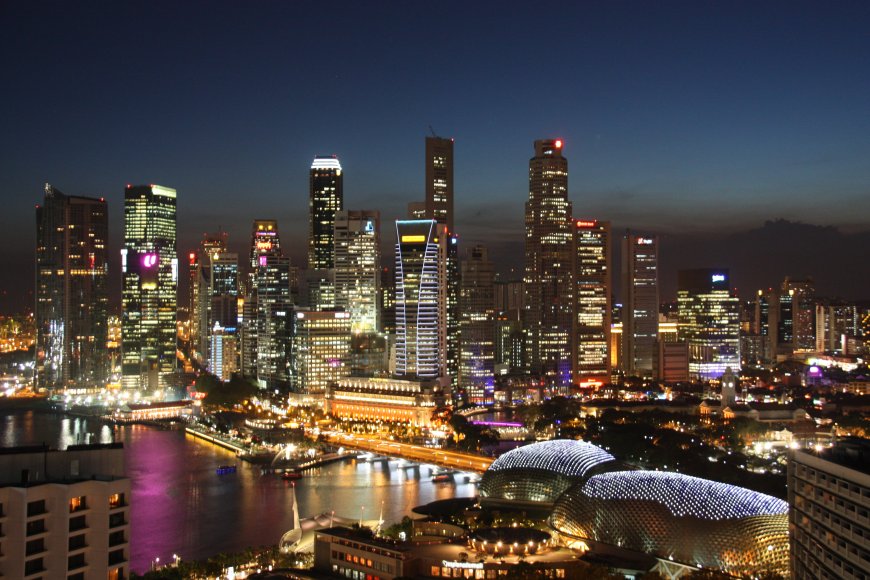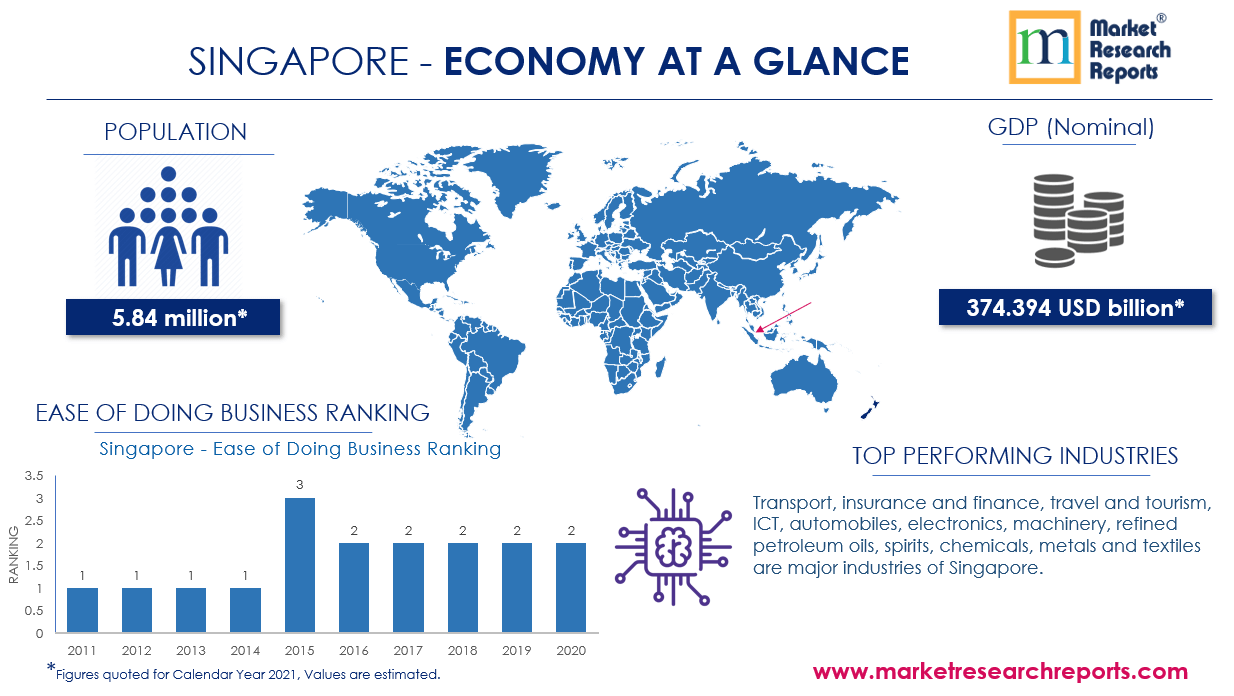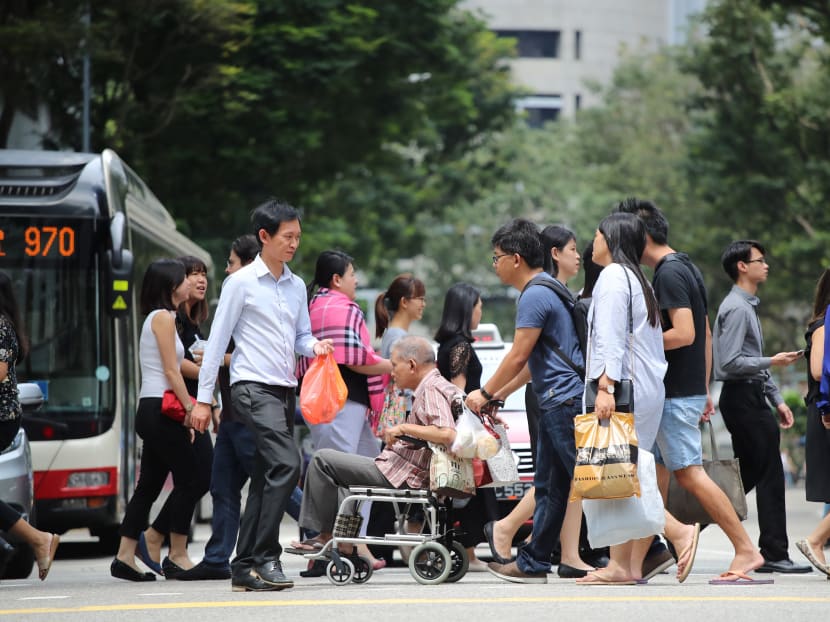Case Study: Singapore – A Model of Libertarian Principles in Action
Explore how Singapore transformed into a global economic powerhouse by implementing libertarian principles. This case study delves into the nation's free-market policies, government roles, and social strategies, highlighting key lessons and challenges faced along the way.

Introduction
Singapore's transformation from a struggling post-colonial state into one of the world's most prosperous economies is often hailed as a remarkable success story. This transformation is largely attributed to the adoption of libertarian principles, particularly a free-market economy and limited government intervention. This case study explores the key factors contributing to Singapore's success, the policies implemented, and the broader implications for other nations looking to emulate this model.
Historical Context

After gaining independence from Malaysia in 1965, Singapore faced numerous challenges, including high unemployment, a lack of natural resources, and a rapidly growing population. The leaders of Singapore, notably Prime Minister Lee Kuan Yew, recognized the need for immediate and effective economic strategies to secure the nation’s future. Embracing libertarian principles became the cornerstone of their approach.
Key Libertarian Principles in Singapore
-
Free-Market Economy
- Open Trade Policies: Singapore adopted an open trade policy that eliminated tariffs and barriers to imports. This encouraged competition and allowed Singapore to become a hub for international trade.
- Encouragement of Foreign Investment: The government actively sought foreign investments by offering attractive incentives, such as tax holidays and the establishment of Free Trade Zones. This approach has helped to integrate Singapore into the global economy.
-
Limited Government Intervention
- Minimal Regulation: The Singaporean government maintained a regulatory framework that, while present, is significantly less burdensome than in many other countries. This allows businesses to operate with greater freedom and flexibility.
- Public-Private Partnerships: The government collaborates with private sectors to drive economic growth while maintaining a limited direct role in the economy. This has fostered innovation and efficiency.
-
Low Tax Rates

- Competitive Taxation: Singapore's corporate tax rate is among the lowest globally (currently at 17%), which encourages both domestic and foreign businesses to establish their operations there. Additionally, personal income tax rates are also kept low, creating an attractive environment for skilled workers.
Economic Growth

Since the 1960s, Singapore has achieved remarkable economic growth, transforming its GDP per capita from approximately $500 in 1965 to over $65,000 today. Key factors contributing to this growth include:
-
Diversified Economy
- Initially dependent on manufacturing, Singapore successfully diversified its economy to include finance, technology, biotechnology, and tourism. This diversification has made the economy more resilient to global economic shocks.
-
Strong Financial Services Sector
- Singapore has developed a robust financial services sector, becoming a leading financial hub in Asia. The Monetary Authority of Singapore (MAS) plays a crucial role in ensuring a stable and transparent financial system that attracts international banks and financial institutions.
-
Investment in Education and Skills
- The Singaporean government has heavily invested in education and workforce development, ensuring that its citizens are well-equipped with the necessary skills to thrive in a competitive economy. This focus on human capital has fueled innovation and productivity.
Business-Friendly Environment

Singapore consistently ranks at the top of various global indices for ease of doing business, including the World Bank’s Doing Business Report. Key aspects contributing to this favorable environment include:
-
Efficient Regulatory Framework
- The regulatory environment is designed to be transparent and straightforward, with minimal bureaucratic hurdles. This allows businesses to register, operate, and resolve disputes quickly and efficiently.
-
Infrastructure Development
- Singapore has invested significantly in infrastructure, including world-class transportation, communication, and logistics systems. This enhances connectivity and efficiency for businesses operating in the region.
-
Innovation and Technology
- The government promotes a culture of innovation through funding and support for research and development. Initiatives like the Singapore Economic Development Board (EDB) provide resources for startups and technology firms.
-
Strong Intellectual Property Protection
- Singapore offers robust intellectual property laws, which protect the rights of innovators and creators, fostering an environment conducive to creativity and innovation.
Social Policies and Stability
While Singapore's economic policies align closely with libertarian principles, the government also plays an active role in social policies to ensure social cohesion and stability. These policies include:
-
Housing and Urban Development
- The Housing Development Board (HDB) provides affordable public housing to a significant portion of the population, promoting social stability and community integration.
-
Healthcare and Education
- The government supports a mixed healthcare system, allowing for both public and private healthcare options. Education is also highly prioritized, with a focus on quality and accessibility.
-
Safety and Security
- Singapore is known for its low crime rates and political stability. The government's effective law enforcement and social policies contribute to a safe living environment, essential for attracting talent and investment.
Challenges and Criticisms

Despite its successes, Singapore faces challenges and criticisms, particularly regarding its political landscape:
-
Limited Political Freedoms
- Critics argue that the government’s strong control over political expression and opposition parties limits democratic freedoms. The ruling People's Action Party (PAP) has maintained a dominant position since independence, leading to questions about political pluralism.
-
Income Inequality
- While the economy has grown significantly, income inequality has also risen. The government has recognized this issue and is implementing policies to address it through social programs and progressive taxation.
-
Dependence on Foreign Labor
- The economy's reliance on foreign labor has sparked debates about sustainability and social cohesion. Addressing the balance between local employment and foreign talent remains a critical challenge.
Conclusion
Singapore’s remarkable transformation into a global economic powerhouse serves as a compelling case study in the successful application of libertarian principles. By prioritizing free-market policies, limited government intervention, and a business-friendly environment, Singapore has created a dynamic and resilient economy. However, the country must continue to navigate challenges related to political freedoms and social equity to ensure sustainable growth and stability.
For other nations considering similar paths, Singapore provides valuable lessons in balancing economic freedoms with social responsibilities, highlighting the importance of adaptable governance that responds to the needs of its citizens.
FAQs: Singapore's Success through Libertarian Principles
1. What are the core libertarian principles that Singapore has implemented?
- Singapore has embraced several libertarian principles, including:
- A free-market economy with minimal government intervention.
- Low taxation to encourage business investment and personal wealth.
- A transparent and efficient regulatory framework to facilitate entrepreneurship.
- Limited government involvement in economic activities, focusing instead on public-private partnerships.
2. How has Singapore achieved such high economic growth?
- Key factors contributing to Singapore's economic growth include:
- Open trade policies that eliminate tariffs and encourage international trade.
- Attracting foreign investment through favorable conditions and incentives.
- Diversification of the economy into sectors like finance, technology, and tourism.
- A strong emphasis on education and skills development, ensuring a competitive workforce.
3. What role does the government play in Singapore’s economy?
- While Singapore’s government maintains a hands-off approach regarding business operations, it plays a crucial role in:
- Establishing a stable regulatory environment.
- Investing in infrastructure and public services.
- Promoting innovation through funding and support for research and development.
- Implementing social policies to maintain social stability and cohesion.
4. What are the main challenges faced by Singapore despite its success?
- Despite its achievements, Singapore faces several challenges:
- Limited political freedoms and criticism of the government’s tight control over opposition and political expression.
- Rising income inequality, prompting calls for more equitable social policies.
- A reliance on foreign labor, leading to debates about sustainability and integration within the local workforce.
5. How does Singapore balance economic growth with social policies?
- Singapore maintains a balance by:
- Investing in affordable public housing to promote social stability.
- Supporting a mixed healthcare system that includes both public and private options.
- Ensuring quality education is accessible to all citizens to foster social mobility.
- Implementing policies to address income inequality and support vulnerable populations.
What's Your Reaction?





















































